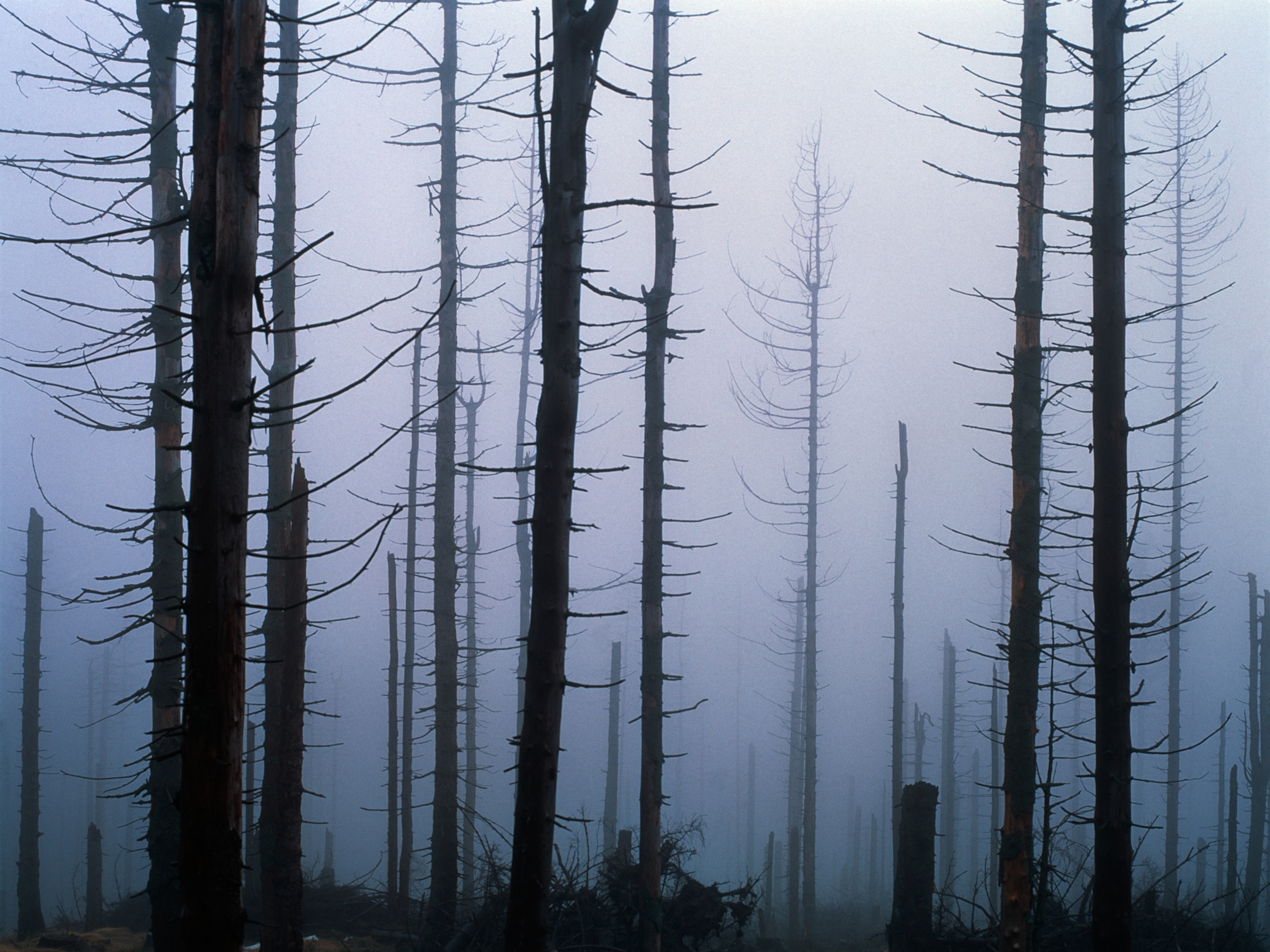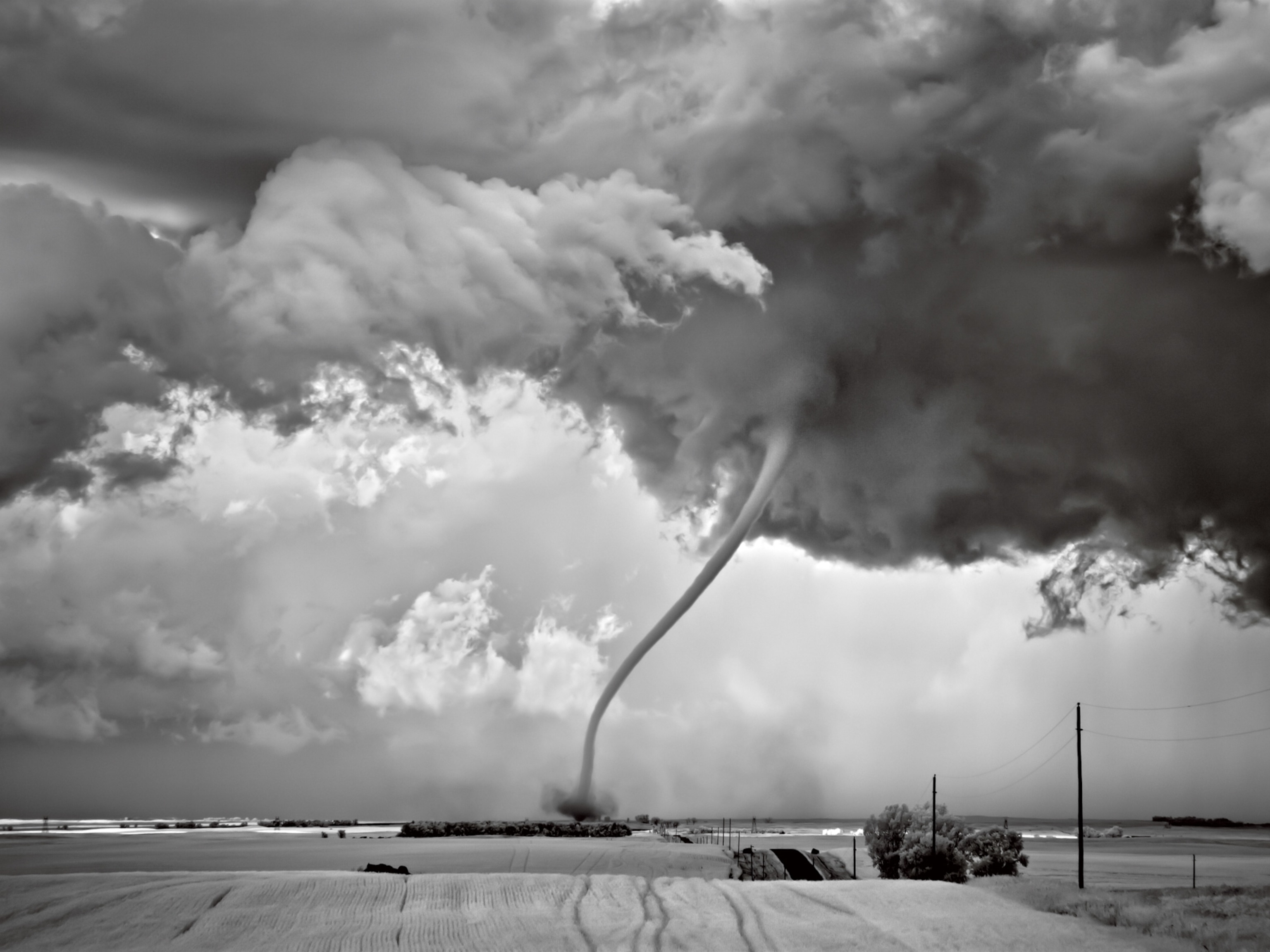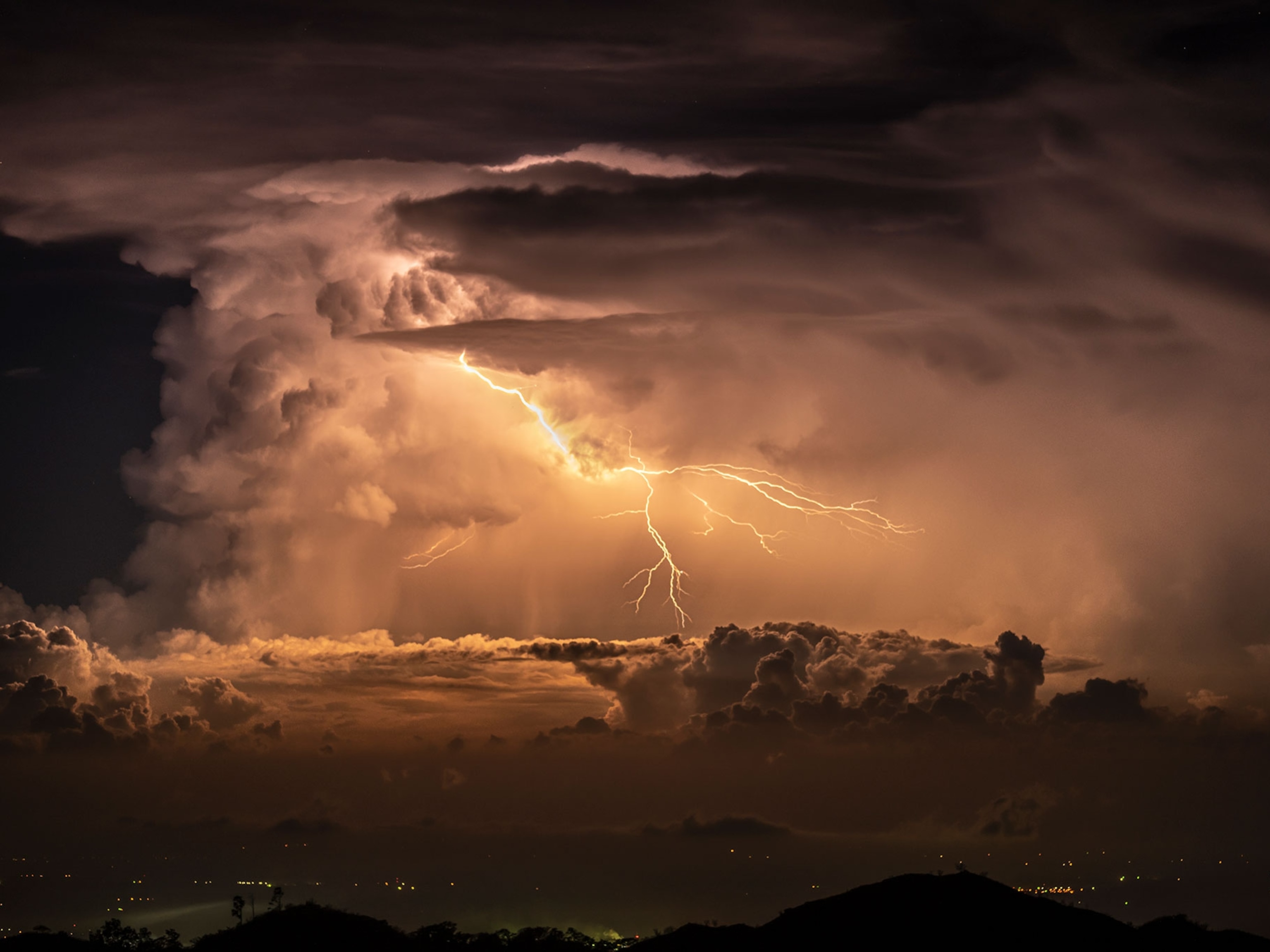
Pollution From Asia Makes Pacific Storms Stronger
Aerosols in atmosphere change weather in North America, says new study.
What happens in Asia doesn't stay in Asia, a new study warns. Pollution from booming economies in the Far East is causing stronger storms and changing weather patterns over the Pacific Ocean, which in turn is changing weather in North America, scientists report.
"Whether the weather [in North America] will change in a good direction or bad is hard to say at this time," says Renyi Zhang, a professor of atmospheric sciences at Texas A&M University in College Station. Zhang is a co-author, along with several scientists from the U.S. and China, of a study released in the Proceedings of the National Academy of Sciences on Monday.
The scientists say pollution from Asia is likely leading to stronger cyclones in the midlatitudes of the Pacific, more precipitation, and a faster movement of heat from the tropics toward the North Pole. As a result of these changes, "it's almost certain that weather in the U.S. is changing," says Zhang.
Smaller Drops, Bigger Storms
Zhang and his colleagues used computer modeling to study the effects on the weather of aerosols, which are fine particles suspended in the air. The main natural aerosols over the Pacific are sea salt tossed up by waves and dust blown off the land.
But those natural particles are now increasingly outnumbered by human-made ones. According to Zhang, the most significant aerosols the team considered are sulfates, which are emitted primarily by coal-fired power plants. Other aerosol pollutants are released by vehicle emissions and industrial activities.
In the atmosphere, such aerosols scatter and absorb sunlight, and thus have both cooling and warming effects on climate. But they also affect the formation of clouds and precipitation—and the magnitude of that indirect effect on clouds is one of the biggest uncertainties hampering scientists' ability to forecast climate change.
Clouds form when water vapor condenses around aerosol particles to form liquid droplets. Because pollution increases the number of particles, it leads to more water droplets—but smaller ones. Those smaller droplets in turn rise to greater heights in the atmosphere—and even form ice—before they precipitate back out.
In an earlier paper, Zhang and his colleagues used satellite data to show that the amount of "deep convective clouds," including thunderstorms, had increased over the North Pacific between 1984 and 2005. The most likely reason, they concluded, was an increase in aerosol pollution from Asia. "The intensified Pacific storm track likely has profound implications for climate," they wrote.
Global Effects
In the recent study the scientists took a first stab at considering those global implications. Standard global climate models simulate the atmosphere at grid points that are too widely spaced to resolve the fine-scale processes involved in cloud formation—which is one reason clouds remain such a knotty problem for climate scientists. But the researchers found a way to embed a "cloud resolving model" into a conventional climate model.
They then used that "multiscale" model to compare the preindustrial atmosphere of 1850, when levels of aerosol pollution over the Pacific were low, with the present atmosphere.
The simulations confirmed that human-made aerosols are now spreading across the Pacific and having large effects on the storms that sweep east during winter. The storms are more vigorous than they would be without pollution, with more ice and a broader "anvil" shape to the cloud tops. And those more vigorous storms are having a significant effect on the global atmosphere: They're increasing the flow of heat from the equatorial region toward the Arctic, says Zhang.
What about North America? The Pacific storm track has a big effect on American weather, and large-scale natural changes like El Niño and La Niña are known to disrupt its usual pattern, leading to floods and droughts.
"What we have shown is that aerosols from Asia can get transported over the Pacific and change weather in North America," Zhang says—but nailing down the nature of the change will require more research.
"We've been getting some weird weather, such as a very cold winter [in the eastern U.S.], so the next question is, does that have something to do with Asian pollution?"




